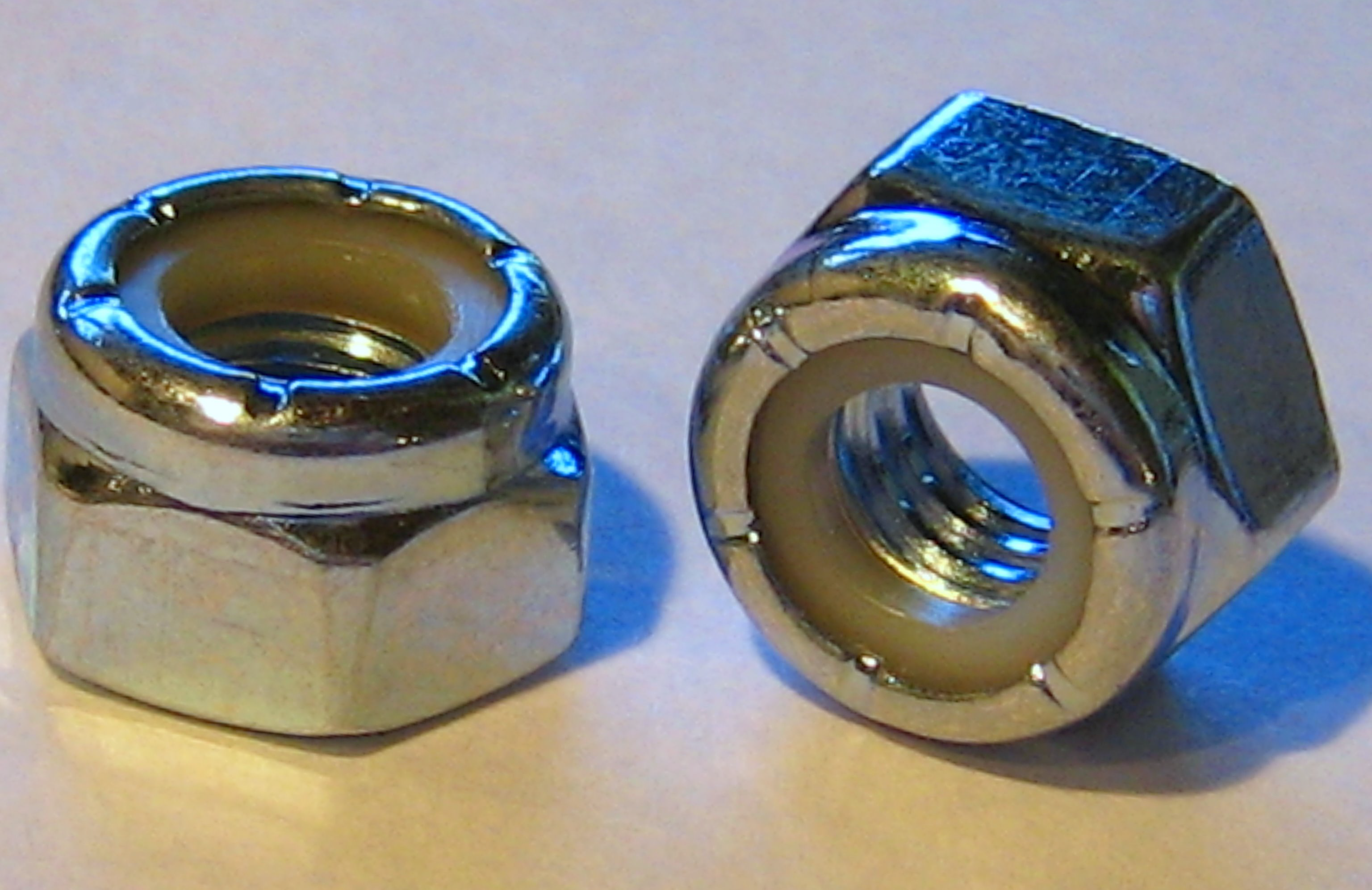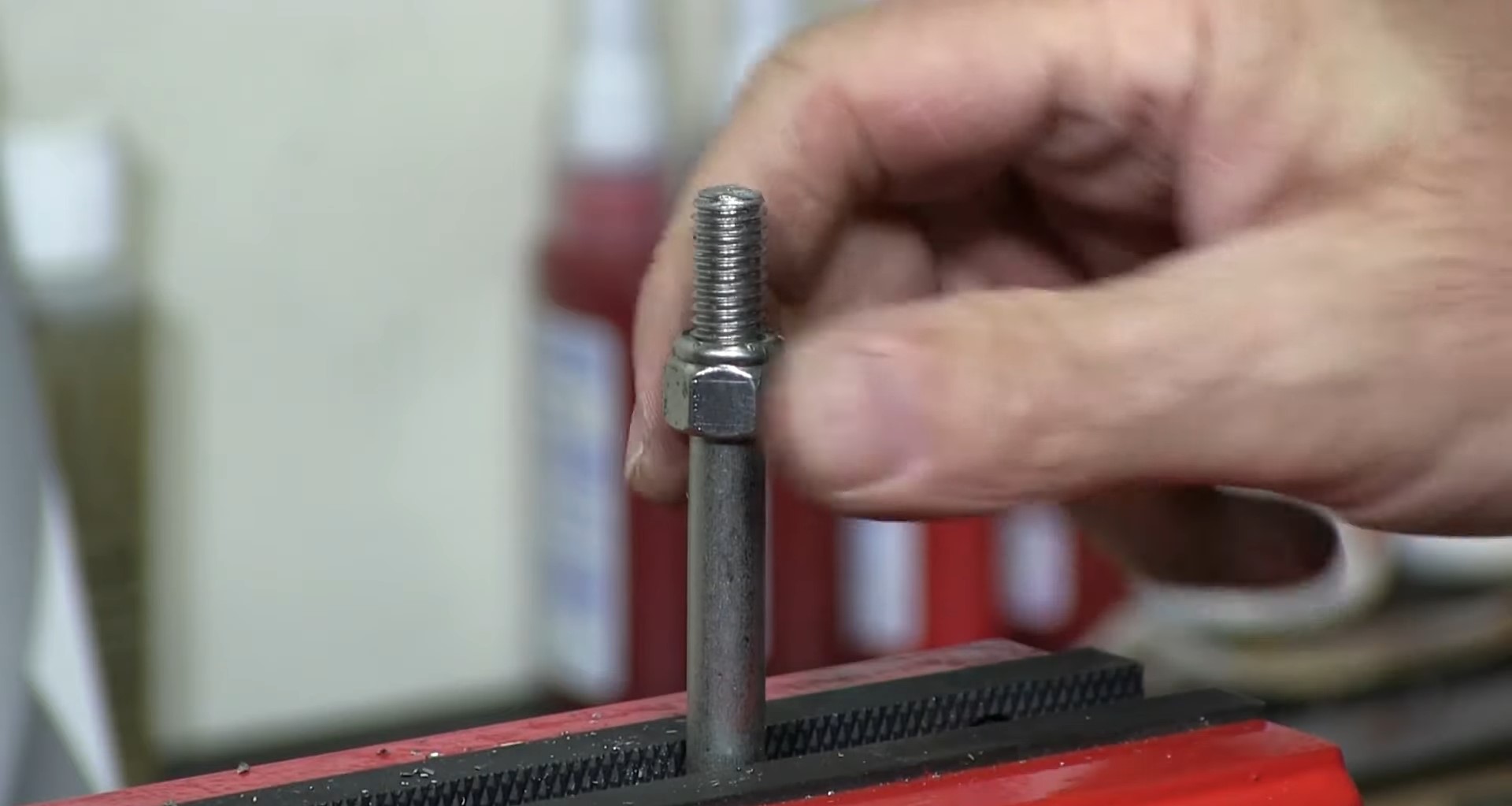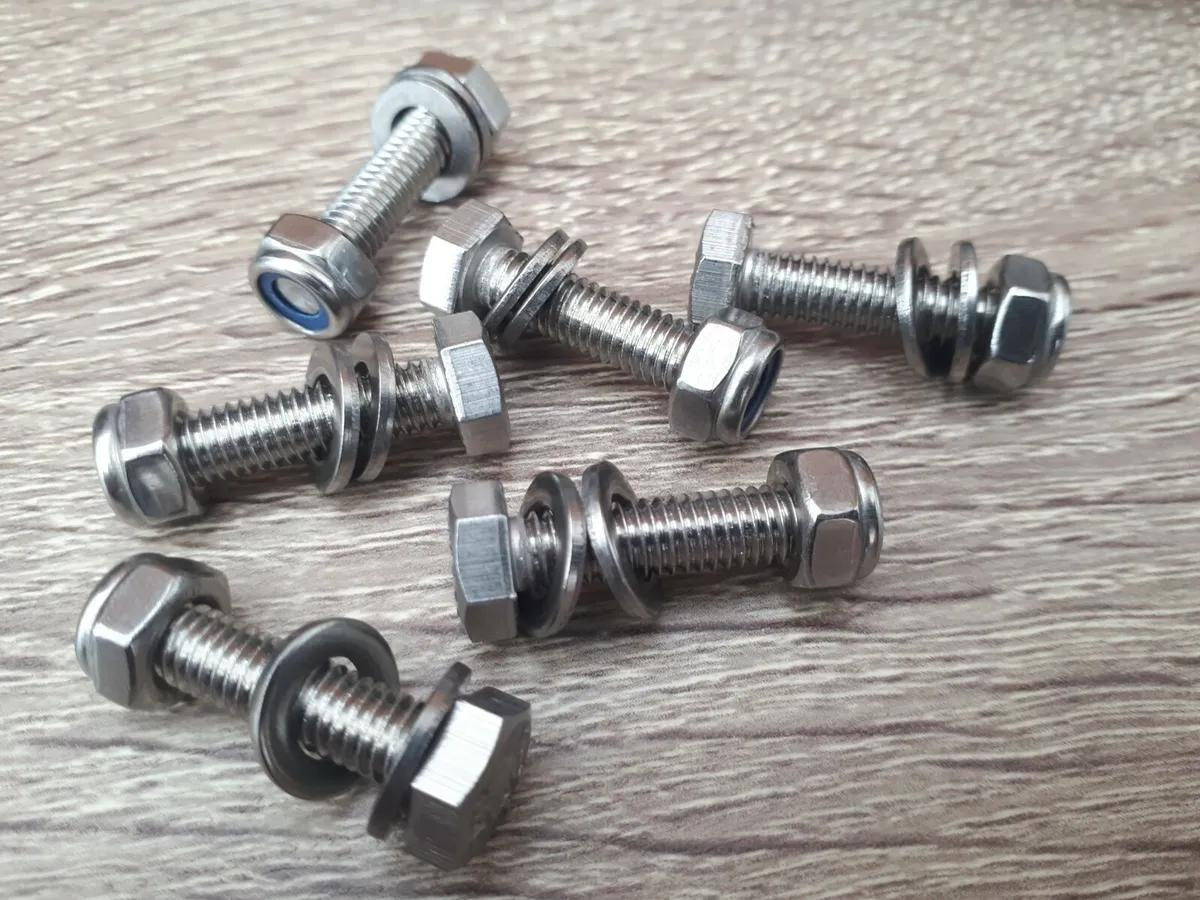
Understanding Nyloc Nuts and Their Applications
Contents
Bolts are one of the most frequently used fasteners and are favoured for their high strength, durability and versatility. They’re often used with nuts and washers to evenly distribute weight loading and ensure a tight and secure fit. The threading prevents radial movement, whereas the bolt head and a matching nut prevent axial movement. The assembly keeps the fastened items connected and minimises adverse factors like vibrations, compression, and deformation.
Most nuts have hex heads, making installation quick and simple. Nuts are torqued or tightened, creating an axial force that works with the fastener thread. To prevent unscrewing, adhesive can be applied to the internal nut thread. A more effective solution however is using a Nyloc nut. This is a type of lock nut with a Nylon insert. This increases the friction the nut provides and reduces the likelihood of unloosening. Nyloc nuts are a common feature in products and parts subjected to vibrations, such as aeroplanes, cars, home appliances and furniture.
What are Nyloc Nuts?

Nylon insert lock nuts, or Nylock for short, are a type of lock nut with a Nylon collar placed at the end of the inner thread. The collar reduces the nut diameter and deforms when tightened against the bolt or screw thread, creating a secure fit. This type of nut provides more holding friction and resistance to vibrations or movement that can undo the nut. The design offers superior holding strength in dozens of uses.
Benefits They Provide

Nyloc nuts are preferred over standard hex and other nuts for several reasons:
- Resistance to vibrations and unloosening – the nylon collar grips the fastener thread tightly and prevents it from coming loose. This can happen from external forces, like vibrations or impact, in standard nut types. The feature increases safety and longevity in equipment, machinery and vehicles constantly subjected to vibrations and movement.
- High-temperature, moisture and corrosion resistance – consistent performance across a wider temperature range (from -40 to +120 Celsius) means a Nyloc nut can maintain its locking capability better than standard nut varieties. The nuts are also used to seal components directly exposed to oil, water, fuel and other liquids, thus preventing corrosion. Plumbing, engine parts, and outdoor construction uses are some of the key areas where these properties are valued.
- Easy to install – the fasteners don’t require special tools during installation. They can be tightened or removed using basic tools like wrenches or pliers.
- Versatility and low cost – Nylon inserts can be added to nuts in different materials, increasing their versatility. The low cost of Nylon lock nuts also reduces overall costs and maintenance in parts assembly and finished products, or where large numbers need to be sourced.
Another benefit is that the nuts can be reused multiple times without compromising the locking ability of the Nylon insert.
Uses

There’s a wide range of industries and applications where Nyloc lock nuts are used:
Aerospace and Automotive Industries
The nuts are used to secure vehicle wheel assemblies, engine components and suspension parts as well as landing gear and avionics systems in aeroplanes. The ability to absorb vibrations and heat and restrict leaks makes them indispensable.
Construction
Nuts with thicker Nylon inserts are found in structural elements in buildings and bridges, in addition to railroad equipment, pipelines, light poles and lifts.
Machinery and Home Appliances
Good heat resistance and superb corrosion and vibration resistance make these fasteners ideal for moving parts and components in heavy machinery, as well as a range of white goods and home appliances. The Nylon inserts resist movement in coupled assemblies and prevent leaks or exposure to external factors.
Furniture, Medical Equipment and More
Superior holding power, anti-vibration properties and good sealing make Nyloc nuts a common feature of bolted assemblies in chairs, beds, cabinets, and medical and hospital equipment. Easy installation and removal also means that products assembled with Nylock nuts and matching bolts can be easily repaired.
Other uses include plumbing components such as fittings, and the manufacture and assembly of various marine-grade components in boats and ships. Here, excellent sealing and resistance to rust are teh major selling points.
Fasteners They’re Used With

These nuts secure parts and materials that are joined with hex-head bolts, track bolts, and all-thread rods and studs. The fasteners are sourced in the same materials and treatment as the bolts and studs, to ensure consistent results and equal holding strength along the length of the thread up to the nut. Zinc-plated steel, high-tensile carbon steel (8C) and 304 and 316 stainless steel are the most common materials these nuts are made of.
Sizing Them Right
Nylon insert lock nuts are sized according to the diameter of the internal threads. This can be in metric or imperial units and must comply with the thread size in matching bolts and fasteners. Common sizes include M4. M8, M12 and M20 (in millimetres) or 1/6, 1/3, 1/2 and 6/8 inches.


